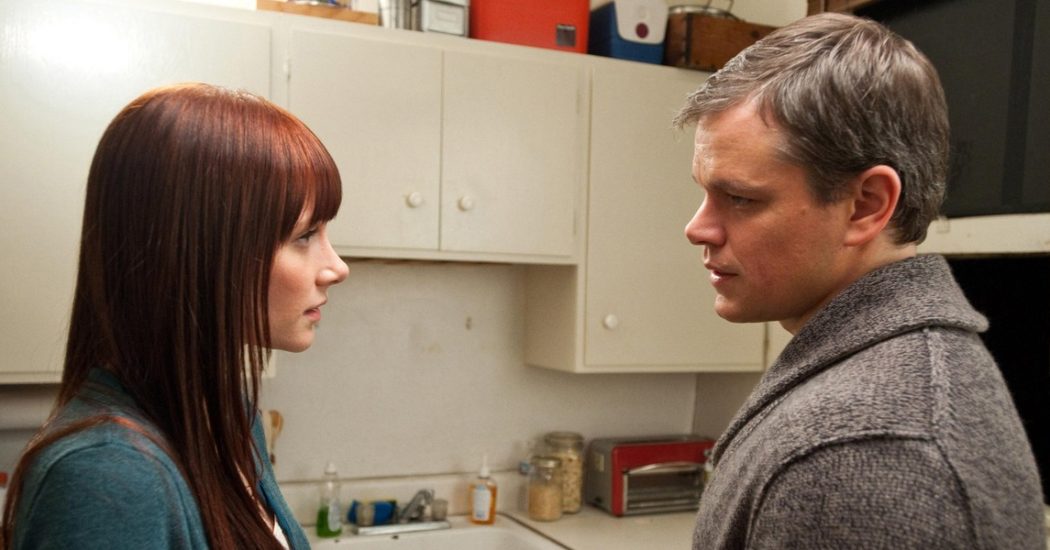
'Hereafter' Review
Release Date: October 15, 2010
MPAA Rating: PG-13
Hereafter is a drama centered on three people who are haunted by mortality in different ways. George (Damon) is a blue-collar American who has a special connection to the afterlife. On the other side of the world, Marie (de France), a French journalist, has a near-death experience that shakes her reality. And when Marcus (Frankie/George McLaren), a London schoolboy, loses the person closest to him, he desperately needs answers. Each on a path in search of the truth, their lives will intersect, forever changed by what they believe might-or must-exist in the hereafter.
Director:
Screenwriter(s):
Producer(s):
Cast:
Editor:
Cinematographer:
Production Designer:
Casting Director(s):
Music Score:
Production

Death is a most difficult thing for people. The multitude of questions that surround it are unanswerable for only those who have died can ever know what happens. In Hereafter, Screenwriter Peter Morgan and Director Clint Eastwood, paint a story that shows three distinct ways different people cope with death, or the hereafter.
George (Matt Damon) can communicate with the dead. He has never experienced a near-death experience nor has any clear beliefs in what happens to a person when they die. He does know that he can connect with a living person and channel those they have lost. Although this gift is seen as more of a curse to George and he desperately grapples with the idea of a normal life. He is searching for his place in the world and a person he can share his life with without the strain of his gift impeding upon them.
Marcus (George McLaren and Frankie McLaren) is a young boy from a troubled home. His mother is a drug addict and the child-welfare office is continually checking in to see if the home is fit for children. When Marcus loses the only stable person in his life, and his closest most trusted friend, he finds himself lost in an uncertain world unable to move forward.
Marie (Cecile de France) is a talented journalist on a tropical vacation when a tsunami strikes. Her near death experience changes her forever, and she cannot connect with the living fully after her return to France. The images and feelings of what happened when she died cannot be forgotten or explained.
With these three characters we are shown the different ways in which the hereafter, and death, can weigh upon a person. The burden of such strong emotions that no one else can understand having not experienced their circumstances for themselves. George, Marie, and Marcus are all outcasts in society. As the film unfolds the emotional pull of their lives is incredibly demanding on the viewer. The film is a character study above anything else and with that it can appear to move slowly yet it is never boring. You are incredibly engrossed in their struggles and given the time needed to reflect, to understand, and to interpret as much as possible the heavy burden their emotions have put upon them.
Hereafter is not for the casual viewer. The superficial empathy commonplace in dramatic, or melodramatic, filmmaking is completely stripped away for the viewer in this film. Instead it is a much more introverted experience where as each moment passes your actual physical and emotion responses grow. It is a strong piece of filmmaking that builds up gradually, gently revealing more and more layers to the characters, until the ending delivers such a great amount of emotional force you are stunned into silence. No matter how much you can see the pieces of all three stories coming together to the inevitable meeting of the characters you cannot fully prepare yourself for the impact or the raw destructive feeling of total unexpected loss each character goes through in their own specific ways. Hereafter is much as one might expect the actual hereafter to be like, quietly amazing.
